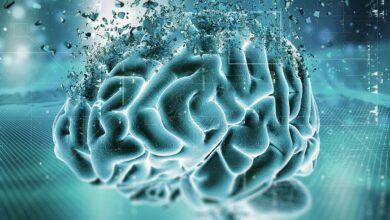Multiple sclerosis (MS) is an autoimmune disease of the central nervous system that affects approximately 2.3 million people worldwide. MS symptoms include difficulty in walking, pain and fatigue.
Some multiple sclerosis patients treat their symptoms with prescription medications or immunosuppressants; however for others, complementary therapies and cannabis use may be a more viable treatment option.
This blog post will discuss what cannabis and CBD are, how they work within your body, what the potential side effects are, and of course, the benefits reported by those who use them.
What is CBD?
Cannabidiol, or CBD, is a compound extracted from a variety of cannabis plants known as “hemp”. This industrial form of cannabis has been specially bred to contain only trace levels of THC, the compound that makes people high or stoned.
CBD products contain either no, or very low amounts of THC and therefore have almost no psychotropic effect. This means they will not make you high.
What is Multiple Sclerosis?
Multiple sclerosis is an autoimmune disease that affects the central nervous system – the brain and spinal cord.
MS causes the immune system to attack myelin, the protective sheath of nerve fibres that helps messages from your brain reach the rest of your body. This causes messages to get slowed or blocked as they travel through a nerve.
Over time, this disease can lead to permanent damage or deterioration of nerves.
The condition is not normally terminal, though it can shorten life expectancy by 6 – 8 years. What can kill people are complications associated with the disease, including sepsis and lung infections.
There is no cure for MS, but treatments can help the symptoms and manage the course of the disease
MS Symptoms
Multiple sclerosis symptoms vary depending on where the nerve cells are damaged. Some of the signs and symptoms include:
- Numbness or weakness in one half of the body
- Electric shocks triggered by specific neck movements, such as bending your neck forwards.
- Tremors, lack of coordination, or an unsteady gait.
Vision problems can include:
- Loss of vision
- Double vision
- Blurry vision
Other symptoms may also include:
- Dizziness
- Tingling
- Fatigue
- Slurred speech
- Sexual, bowel, and bladder function problems
What causes Multiple Sclerosis?
The cause of MS is not known. Scientists think that the disease may have genetic and environmental causes. It seems that some people are more susceptible than others, though it is unknown why.
Risk Factors
Factors that may increase your risk of developing multiple sclerosis include:
Age – MS most often appears between 20 and 40 plus but is not unheard of in younger or older people.
Sex – Women are more than two and three times as likely to have relapsing-remitting MS.
Family history – If you have an immediate family member with multiple sclerosis, your risk of developing the disease increases.
Certain infections – The Epstein-Barr virus, or EBV, which causes mono, has been linked to multiple sclerosis.
Race – People with Northern European ancestry have the highest risk of getting MS.
Climate – Multiple sclerosis is more common in countries with temperate climates, such as the United States.
Vitamin D – Low vitamin D levels and low exposure to sunlight are associated with a greater risk of MS.
Certain autoimmune diseases – People with other autoimmune illnesses such as thyroid disease, pernicious anaemia, psoriasis, or type 1 diabetes have a slightly higher risk of developing multiple sclerosis.
Smoking – Smokers have a higher risk of developing relapsing-remitting MS.
How medical marijuana works in the body
Cannabis or marijuana has been shown to help with a variety of medical conditions by working with the body’s endocannabinoid system (ECS). It interacts with our cannabinoid receptors to produce various effects on the body like relieving pain, helping improve mood; reducing nausea (and other side effects) caused by chemotherapy treatment and decreasing anxiety levels.
It can do this because it contains two cannabinoids called THC (tetrahydrocannabinol) and CBD (cannabidiol).
What is the role of the endocannabinoid system?
The endocannabinoid system is a complex cell signalling system within the body. It regulates many basic functions such as body temperature, hormones, sleep, fertility, appetite and mood. It’s role is to keep us in a state of balance or homeostasis: not too hot or too cold, too hungry or too sleepy.
The ECS was named by scientists investigating how THC works in the human body. It is active in your body even if you don’t use cannabis.
How cannabis can help MS sufferers
Relief of pain, spasticity, depression, fatigue, incontinence and sleep problems are significant benefits of medicinal cannabis for people with MS symptoms according to the web-based survey hosted by the National Multiple Sclerosis Society .
Another study conducted by the University of Rochester MS Center in New York looked at the “real world” experience among people with MS who had been prescribed medical cannabis.
The study found that 77 percent of participants reported positive effects from using marijuana for pain and spasticity, as well as other symptoms including anxiety, depression and sleep. Another 70 percent found that cannabis was able to help them in managing symptoms associated with their disease and reduced the number of other medications they take, and over 90 percent reported that cannabis was easy or somewhat easy to obtain.
How to use cannabis or CBD as a treatment for your condition
The types of cannabis and CBD products available depend very much on the country you live in and whether medicinal cannabis products are legal or not.
Here are some of the forms available:
Oils and tinctures
This is the most common form of medical marijuana. The oil or tincture is placed under the tongue and absorbed into the bloodstream. This type of medication is fast-acting and can be used to treat a variety of conditions. The effects last 6 – 8 hours, so 3 doses a day should give you 24 hour coverage
Flowers
Vaped CBD oil is absorbed into the bloodstream through your lungs, unlike other CBD products that go directly into the gut via the stomach. The effects of vaping come on instantly, making it ideal for when you need instant relief from muscle spasms. When using vapes, benefits typically last about 30 minutes to an hour, so consider another method instead if you want a longer-lasting effect.
Topical creams and balms
CBD topicals, like lotions and gels, may be an excellent alternative to CBD vapes or drops when relieving pain. While these methods take longer to take effect than inhaling, they are usually more effective because the CBD directly targets the location where you’re feeling pain.
Edibles
CBD edibles are a great way to get the benefits of CBD without smoking. The most common form of edible is the brownie or gummy bear, but there are many different types of food that can be infused with CBD. The effects of edibles can take anywhere from 30 minutes to 1 hour to kick in. This makes them a good option if you want long-lasting relief.
Oral capsules
These are measured doses available in oral form, normally as a gel coated pill.
Licensed medications: Sativex
Sativex® is a cannabis extract in the form of an oral spray. It is licensed across the European Union and most of the world for use against muscle spasticity caused by multiple sclerosis (MS).
It cannot repair damage to the myelin coat but instead works by affecting certain natural chemicals (called neurotransmitters) in your brain that control nerve impulses to muscles.
Doctors specialising in treating MS symptoms can prescribe Sativex ® after an initial trial period to see if the medicine is right for you.
Unlike smoking marijuana, you should not feel “high” when taking this medication as prescribed. However as it contains 1:1 THC:CBD, it may make you dizzy and drowsy or give you a feeling like being drunk, especially when first used.
Dosage
The strength of different products on the market varies widely, from 200mg CBD up to 4000mg in a 10ml bottle. The dosage depends on the condition and severity of your condition.
For multiple sclerosis, doses vary widely. Studies show that 300 mg a day is considered safe for up to 6 months. Some people take as much as 1500 mg per day, though this is only recommended for short periods.
It is best to consult with a medical professional before starting any new supplement, including CBD oil. Your doctor will be able to guide you on the right dosage and also monitor your progress to make sure that the treatment is effective and safe for you.
Are there any side effects from using Medicinal Cannabis or CBD for MS treatment?
CBD is generally considered safe, but it has a risk of side effects. These include:
- appetite changes
- weight changes
- fatigue
- diarrhoea
Conclusion
If you are living with MS, and your current regimen is not working, you may want to consider trying CBD or cannabis. Both have been shown to provide relief from the symptoms of this disease. However, before you start using them, it is important to talk to your doctor about whether they are right for you, and also what is legally available in your country or state.
There are many different ways to take CBD and cannabis, so be sure to discuss which option would work best for you. Thanks for reading!
FAQS
Legal issues with using cannabis for MS
One would assume that because CBD oil has THC levels below 0.3%, it should be legal everywhere. However, even within Europe, differences in regulation make it illegal to import or use. If you are travelling, check the rules, but it is unlikely you can legally carry your cannabis-based medicine with you unless it has been certified by a doctor.
Is marijuana addictive or dangerous to use on a regular basis?
Marijuana can be psychologically addictive when used on a regular basis. It is not dangerous to use, but can be harmful if abused and can cause anxiety and paranoia in some users. It should not be used by people who are susceptible to mental health issues. Overall, marijuana is a safe drug with minimal risks when used responsibly. In fact, marijuana has been shown to have a number of health benefits, including relief from chronic pain, nausea and anxiety.
READ MORE







